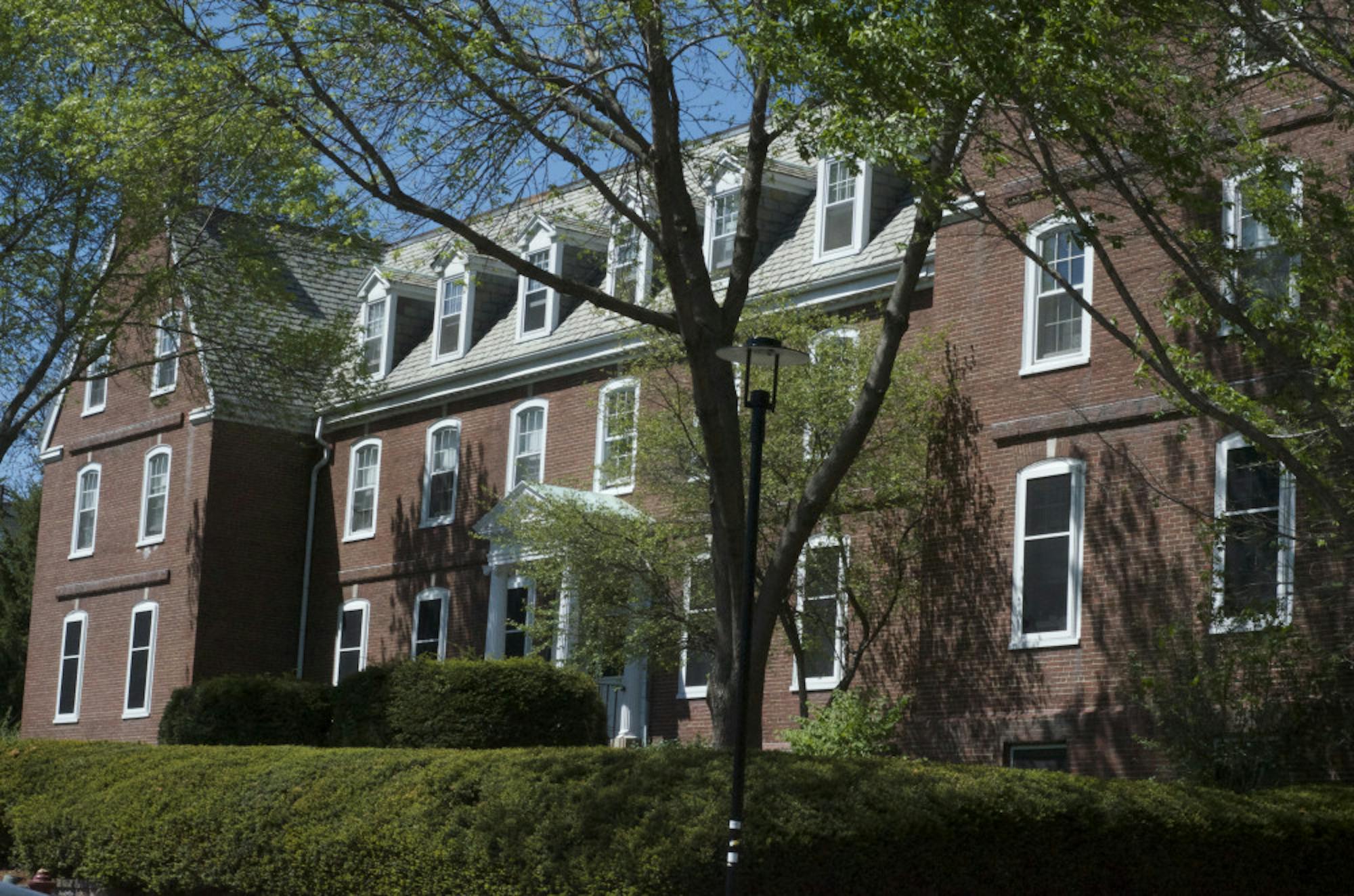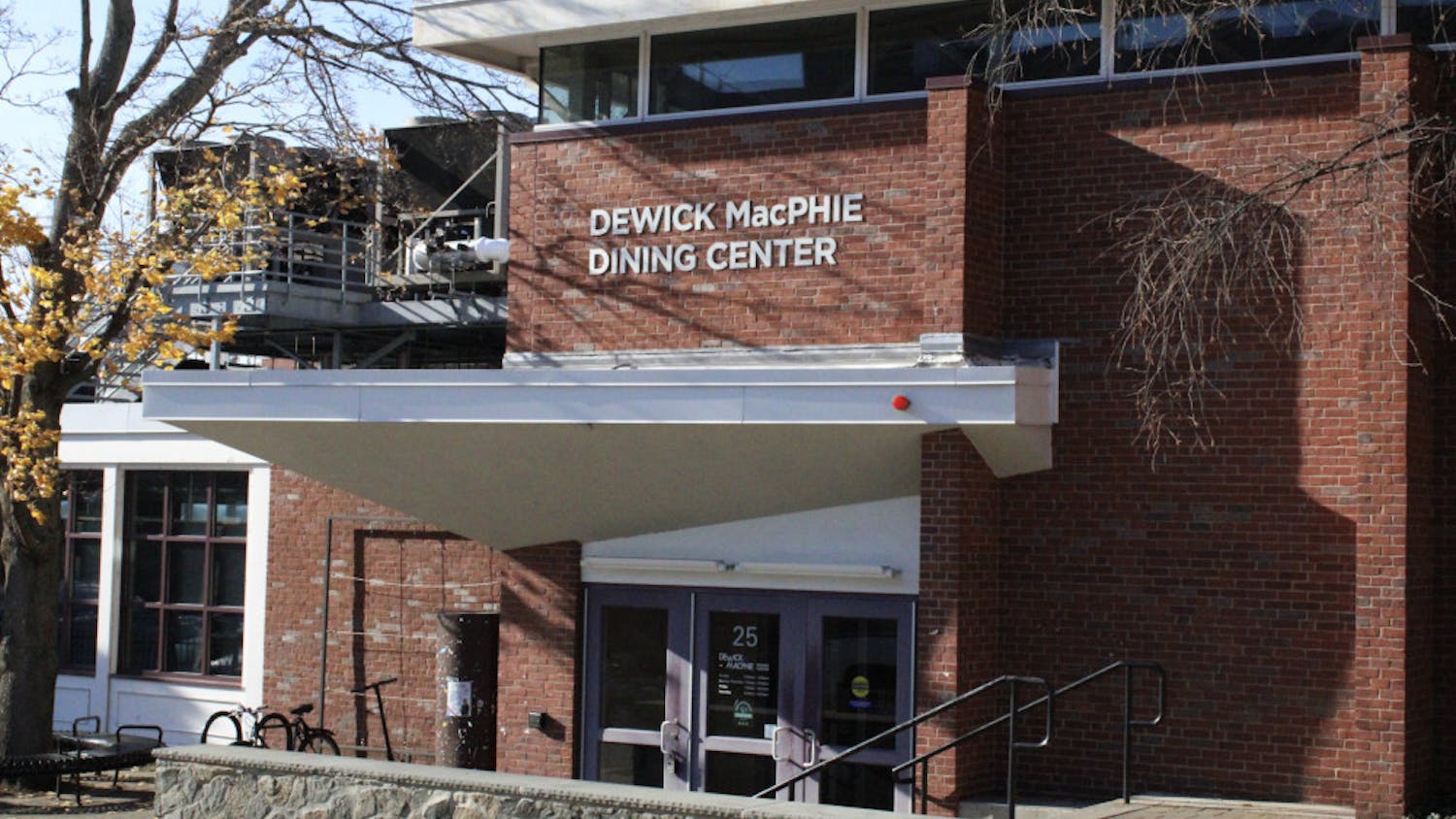The Office of Residential Life and Learning (ResLife) has restructured its former system of ten part-time Residence Hall Directors (RDs) in favor of a new system that replaces the RDs with four full-time Area Residence Directors (ARDs) starting this year.
The new ARD position was intended to ensure a more exclusive focus on the needs of students by giving more support to those who live on-campus, according to Director of ResLife Yolanda King.
The selection process for the new ARDs began last spring with a national search, and interviews went through the summer, King explained.
Dean of Student Affairs Mary Pat McMahon said that interviews were conducted by staff from across the Group of Six and other key partners in student life and student affairs. Students were also included in the search and interviewing process, according to Khang Nguyen, a returning Resident Assistant (RA) in West Hall.
“They had interviews with a bunch of people, and they even invited RAs to interview their boss basically ... so it was cool that they included us in the process,” he said.
McMahon said that the original ten RDs were graduate students who were often already very busy with their own work, so their responsibility to assist students and staff was just an additional commitment.
“The one problem I have heard was scheduling," she said. "Getting grad students in a myriad of programs from around Boston together to meet and then having a consistent time that you could say, ‘Okay I need this person to follow up with so and so ... could be nearly impossible sometimes."
McMahon added that the goal for the creation of the ARDs was to replace the previous ten people who worked at the job part-time with four full-time staff who have consistent, established hours and spaces.
Nguyen, a junior, agreed that the position was too time-consuming for graduate students.
“I think that what was difficult in past years was that the RDs were hired as graduate students, so they were basically us -- students -- but like with even more stuff to handle, and they had responsibilities of maintaining and managing a dorm, so that was hard for them," he said. "So I think that ResLife wanted to hire full-time ARDs so they could devote a lot more time to this one job.”
The new ARDs are Tanya Mascary for Area 1, Christopher Muchata for Area 2, Ana Ibanez for Area 3 and John McGlynn (LA'06) for Area 4. Area 1 includes Houston Hall, Hill Hall, Miller Hall and West Hall, while Area 2 includes Wren Hall, Carpenter House, Carmichael Hall, Wilson House, Metcalf Hall and Richardson House. Area 3 encompasses Haskell Hall, Tilton Hall, Bush Hall and Hodgdon Hall, and Area 4 includes Lewis Hall and South Hall.
McGlynn (LA ’06) explained that the ARDs help create an environment which caters as much as possible to students' academic endeavors.
"We want to make sure that they have as many resources at their disposal as possible, so by switching to full-time employees, there’s a little bit more of an emphasis on making sure that they have everything they need to flourish," he said.
McMahon’s added that the ARDs will also help to better connect students on campus.
“If [ARDs] have the pulse of what’s happening building-to-building and are supervising a group of staff in those different buildings, then they can identify and help connect resources already available at Tufts to students who are interested in a timely way," she said. "That’s the [new] opportunity."
Kelsy Hoffman, another RA in West Hall, said the ARDs will provide a better scope of how a wider area of campus residential life is functioning, rather than a few floors of a specific hall, that will give individual RAs greater perspective for their jobs.
“Students don’t just stick to their dorms -- we always go to other dorms," Hoffman, a junior, said. "Being part of a larger area is what we are inherently at Tufts, so having a larger area that the ARD is now a part of is kind of mirroring what we naturally do.”
So far, Hoffman and Nguyen have had positive experiences with Mascary, who supervises West Hall.
“She has a bigger group of kids to look over, but we’re still meeting with her on a bi-weekly basis just to check in and see how it’s going, so communication is good,” Nguyen said.
Hoffman explained that despite the number of people in each dorm, she knows that her ARD is there to assist her throughout the process.
"It’s a really solid support system to help us just figure out our own jobs," she said.
McGlynn said that he is trying to emulate the relationship he had with his RD when he was an RA by focusing on openness in communication and making himself available as a resource for RAs and students alike.
“I would say my relationship with the RAs is interesting because you want to be a resource there for them and you want to have that open door policy, which I think is really important," he said. "There’s also a bit of that authority figure piece to the position as well, so there is kind of a fine line. My policy on that is just to be as transparent as possible so that they know exactly where I’m coming from so there should never be any surprises."






